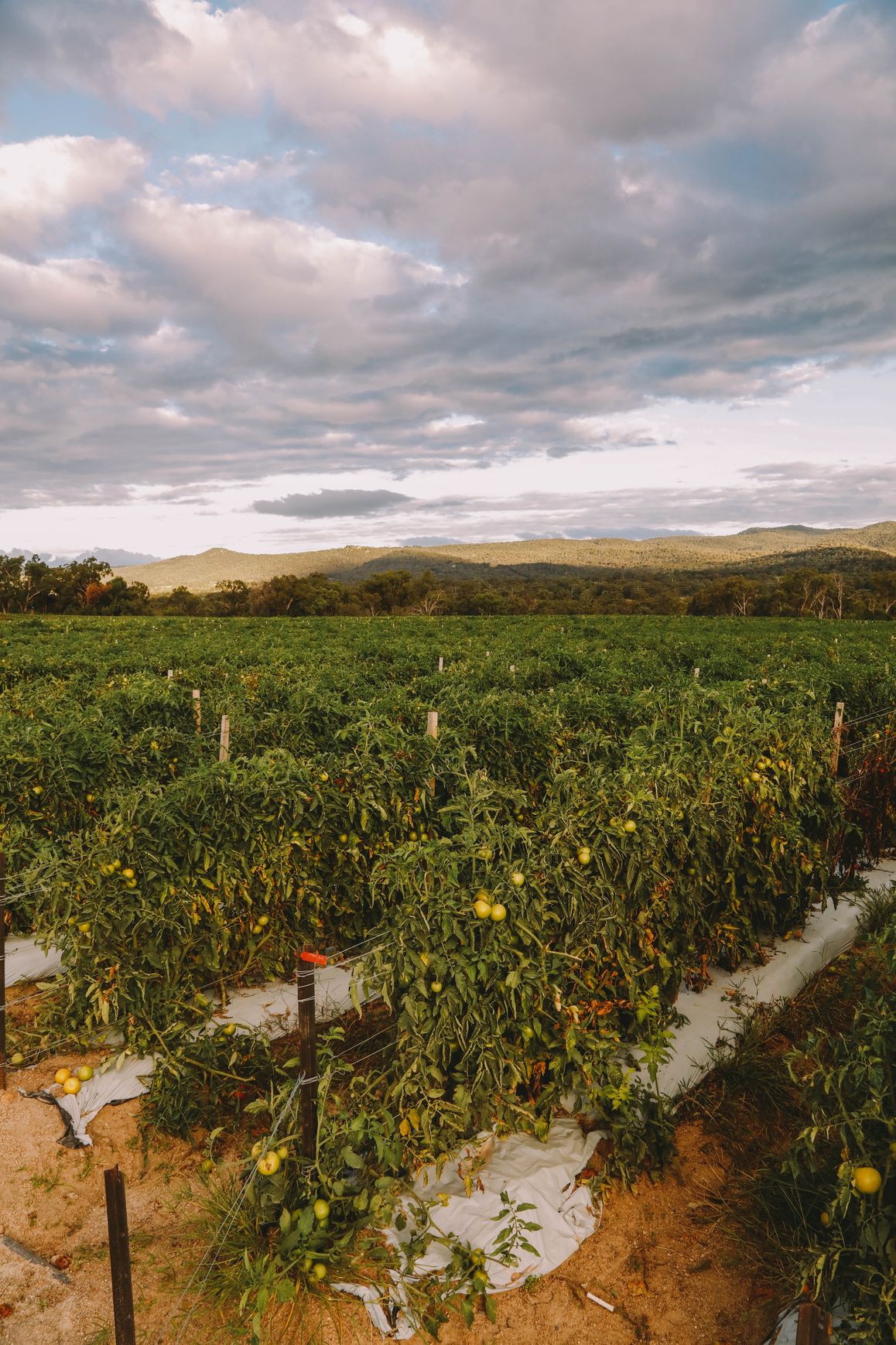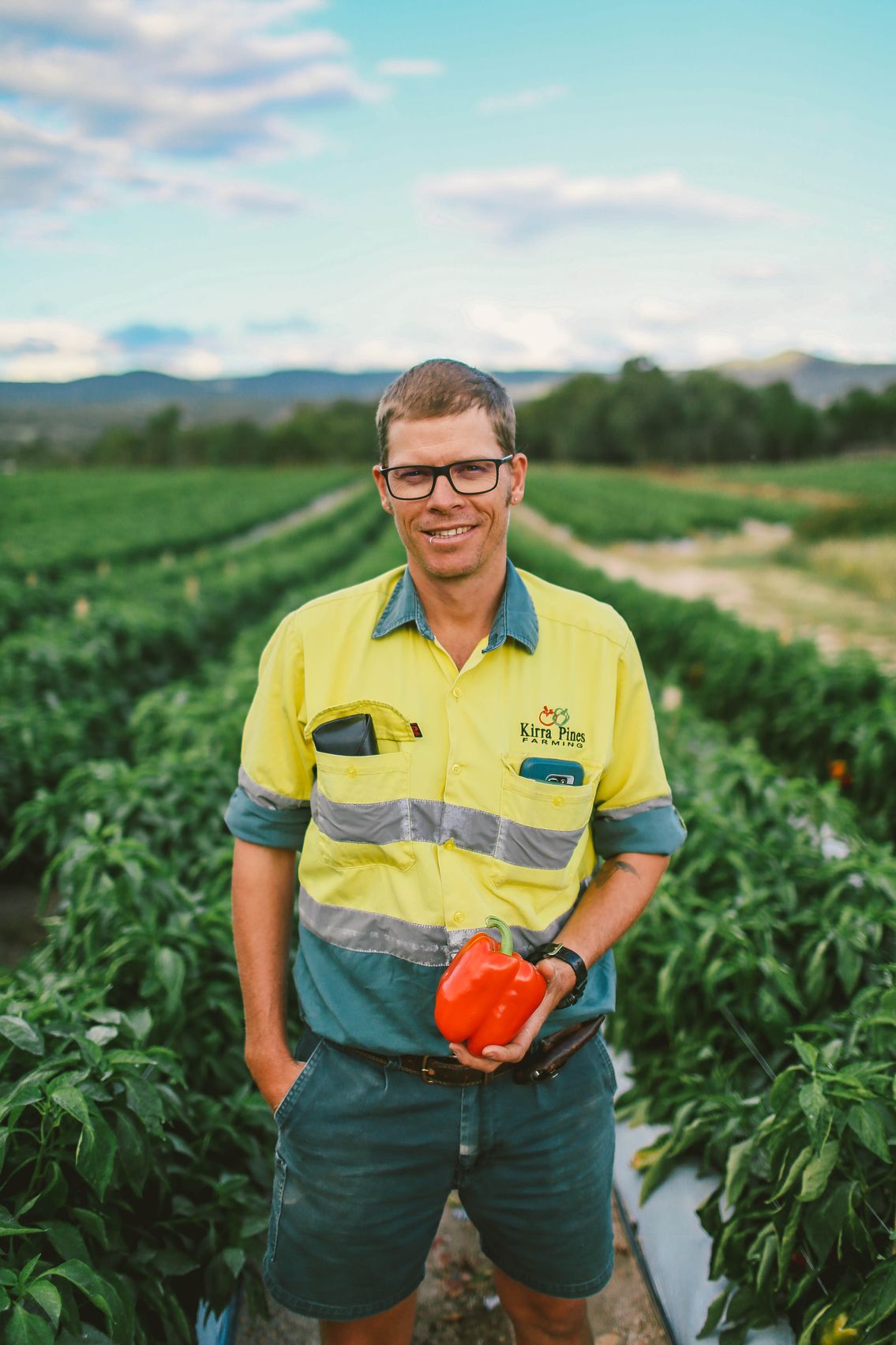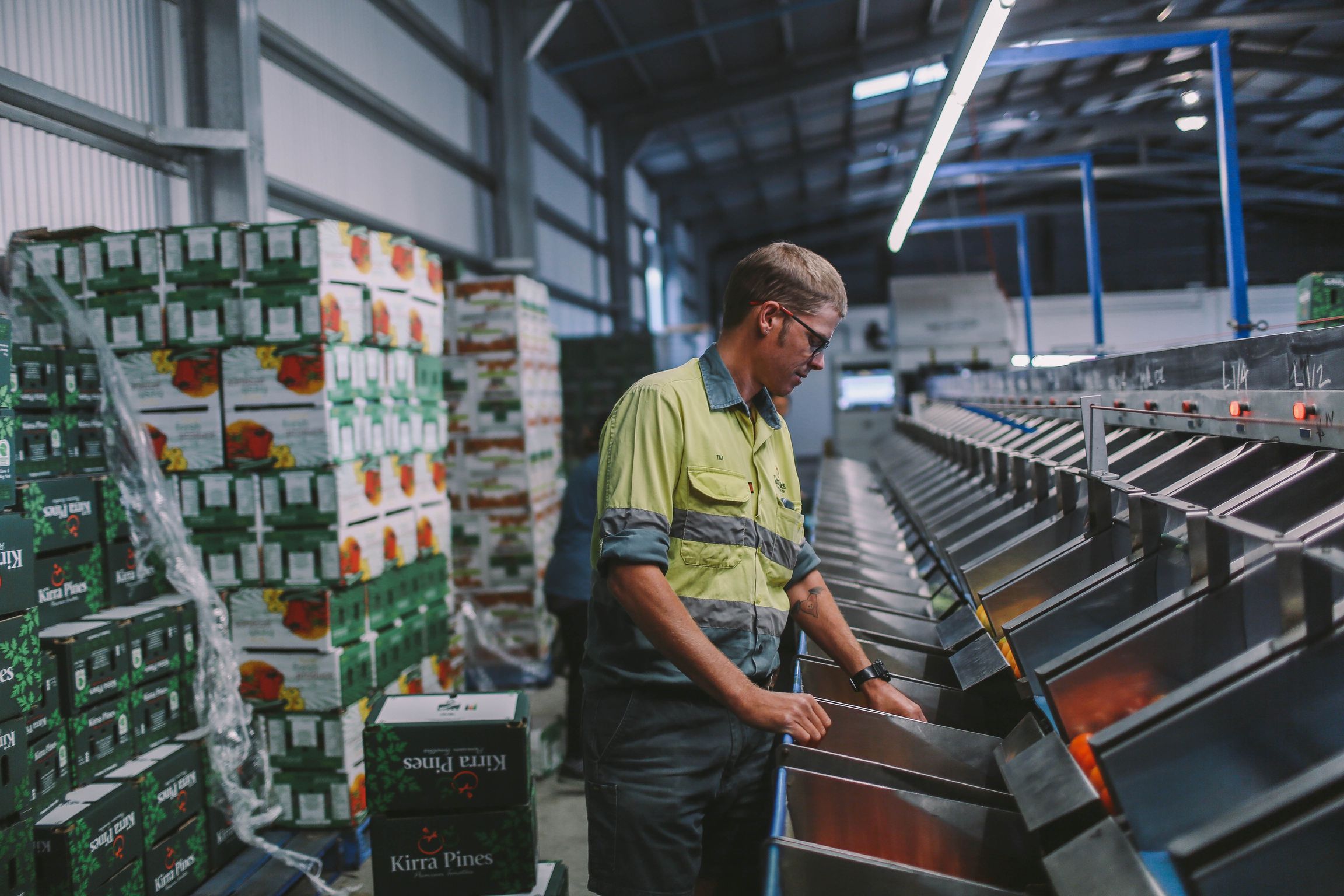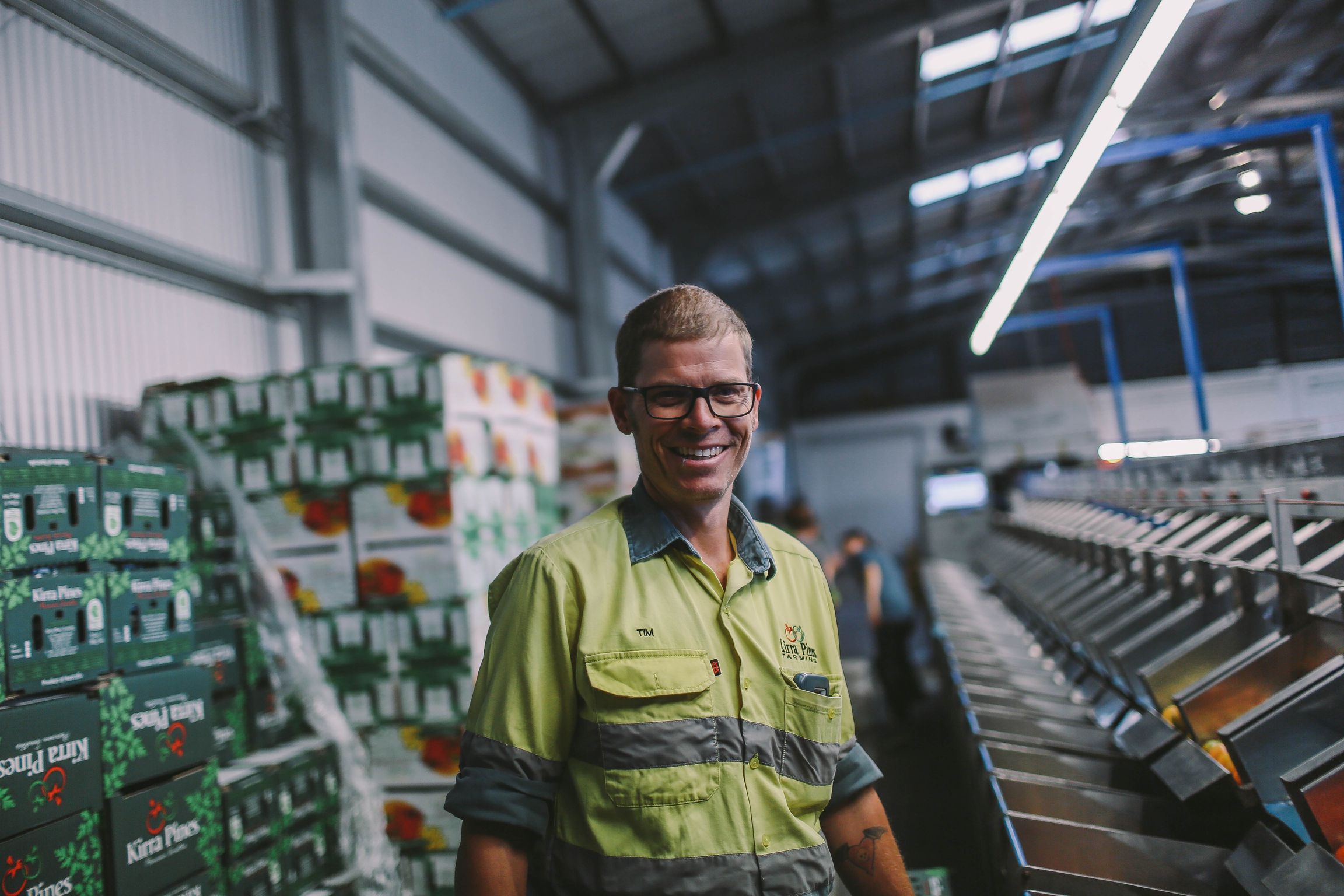Tim Carnell: Hard work pays dividends for third generation grower
Tucked away in the hills not far from Glen Aplin is Kirra Pines Farming, a rapidly expanding vegetable growing operation that is spread across three locations on the Granite Belt. We spoke to the driving force behind the business, Managing Director Tim Carnell, about the challenges he faces, the importance of on-farm biosecurity and his plans for the future.
Fast facts
Name: Tim Carnell
Location: Glen Aplin, QLD
Works: Kirra Pines Farming
Grows: Capsicum, tomatoes, zucchini and leek
Queensland vegetable grower Tim Carnell can consider himself fortunate in comparison to many of his colleagues around the state in recent weeks.
Tim is Managing Director of Kirra Pines Farming, a 235-acre growing operation based at Glen Aplin, located seven kilometres south of Stanthorpe on the Granite Belt. The region was spared the worst of Cyclone Debbie, which hit Queensland in late March and caused widespread destruction to a majority of the state’s key production areas.
Escaping Cyclone Debbie’s wrath brought a sigh of relief to Tim and the Kirra Pines Farming team, with the operation covering seven farms in three growing areas within a 35 kilometre radius.
As a third-generation grower, Tim (who runs the growing operation with his wife Felicity and parents Trevor and Alison) employs 130-150 staff in the peak season alongside 15-20 full-time staff.
Kirra Pines Farming grows tomatoes, capsicums and zucchinis, with leek production in the winter months.
Rapid growth
As Managing Director of the business, no two days are the same for Tim. He says he is involved in “anything and everything”, although his role has shifted slightly over time.
“We’re a growing business. What we’ve done over the last five to six years has been quite steep, so my role now is basically coordinating with staff from our business management, administration, operations and maintenance through to our packing sheds and harvest crews,” he explains.
“We’re looking at future developments and opportunities where we can be best positioned going forward.”
Tim says that having three growing areas already provides benefits to the farm.
“We’ve got water security, hail risk management and individual micro climates. Each growing area is unique, and we’re able to schedule our production throughout our growing season starting at the warmer blocks, moving to the cooler farm mid-season, then to warmer sites for the run into late autumn.”


Overcoming challenges
Weather aside, vegetable growers face many other obstacles, both on-farm and in the daily running of their businesses. Negotiating with markets, keeping up with supply and demand plus the cost of labour and compliance are all challenges facing Tim and his business, as well as future energy costs.
Fortunately, there are already plans in place to help combat these challenges.
“We’re looking at everything from energy efficiency with our pumps and all of our electrical equipment in packing sheds to conserve where we can. We’re also looking at technology we can implement to make us more efficient as a business,” Tim says.
“On the labour side, we focus on the cost of every job and every task and consider where we can make piece rate available for certain jobs. This allows staff to make more money per hour, and it enables us to have a more stable unit price.
“Anything we can be doing to reduce labour and cost through the implementation of technology, is critical to our future.”
Taking biosecurity seriously
Kirra Pines Farming has its own in-house biosecurity policy, as there is a lot of movement between farms. This includes protocols on general hygiene, farm hygiene and the cleanliness of machinery and infrastructure.
Staff are conscious to keep the movement of equipment between farms to a minimum and wash machinery if transported, while all contractors receive a biosecurity induction.
“Certainly, biosecurity is something that we’ve got to be aware of. We all feel a little bit immune on our farms and think that it won’t happen to us. However, we’ve seen in recent times certain disease outbreaks around Australia and the world in horticultural crops, so we need to be on the front foot with those,” Tim explains.
“You’ve got people entering the farms who need to be aware of keeping to the designated areas.”
"“Anything we can be doing to reduce labour and cost through the implementation of technology is critical to our future."
Achieving goals
Water security is a major focus for Tim, and has played a significant role in the growth of Kirra Pines Farming. As the farms rely entirely on surface water and are situated on the Granite Belt, water is a precious resource.
“As we grow our business, we still want to grow the same quality, if not, better quality than a smaller grower. Achieving this as a larger operation and not losing sight of the quality we need in the marketplace is certainly challenging. Having strong relationships in the industry helps as well, whether it be from a sales or marketing perspective or from key suppliers through to our staff,” Tim says.
“Another factor for our growth and success thus far is having a focus not so much on production or volume. We are looking at profitability and approaching our business as an agribusiness, not just turning numbers out for the sake of it. We’re looking at the return per hectare; profit per mega litre of water; and making rational decisions based on good quality information at hand.”

Looking ahead
Despite the business advancements made over the past six years, Tim is still keeping an eye out for future opportunities.
“There’s definitely more growth for our business in the future. We’ve got some good marketing relationships with supermarket chains, wholesale markets and processors so there’s plenty of potential in all of those areas,” he says.
There is an ongoing succession plan in place at Kirra Pines Farming. Tim says this is another huge challenge facing those in the vegetable industry.
“I think one of the biggest challenges for family farms is succession planning, and how we succeed to the next generation. The cost price squeeze, profitability and the overall business dynamic is very different to 30 years ago,” he says.
“I’m proud of being able to achieve the growth which we have had in a relatively short amount of time. With that comes a lot of hard work, and Felicity and myself are fortunate that my parents have supported the changes and growth our business needed.
“We’ve got three young daughters, so potentially in another 10 years we could have the next generation coming into our business. I suppose that is in the back of your mind – setting some kind of platform that they could potentially join if they choose.”
This grower profile first appeared in the leading magazine for the Australian vegetable industry, Vegetables Australia. If you’d like to subscribe to receive a new edition of Vegetables Australia in your mailbox every two months, use our online subscription form!
Photo credit: Cory Rossiter

